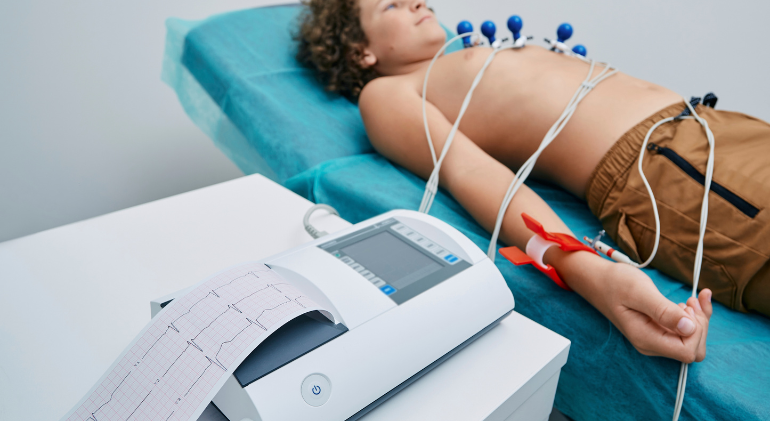
🧪 What Is an EKG? Understanding the Heart Test You’ll Probably Have One Day
If you’ve ever visited a doctor and had little sticky patches placed on your chest with wires attached, you’ve already had an EKG—also called an ECG.
But what does an EKG actually do? Why is it so common? And what do all those squiggly lines mean?
Let’s break it down in plain English.
What Does EKG Stand For?
EKG stands for Electrocardiogram.
It’s a simple, painless test that records your heart’s electrical activity. Every heartbeat is triggered by an electrical signal—and the EKG tracks that activity to detect if anything’s off.
Why Would a Doctor Order an EKG?
You might get an EKG if you’re experiencing:
- Chest pain
- Shortness of breath
- Fatigue or dizziness
- Irregular heartbeat
- Or just during a routine physical
Even if you’re not feeling symptoms, an EKG can catch hidden heart issues before they become serious.
What Can an EKG Detect?
An EKG helps cardiologists spot:
- Arrhythmias (abnormal rhythms)
- Heart attacks (past or current)
- Poor blood flow to the heart
- Electrolyte imbalances
- Thickened heart muscle
Think of it like a snapshot of your heart’s rhythm at that moment in time.
What Happens During the Test?
- You’ll lie down on a table.
- A technician will place small electrode stickers on your chest, arms, and legs.
- Wires connect the electrodes to a machine that prints out your heart’s electrical signals as waves.
- The whole thing takes about 5–10 minutes. No pain, no prep, no downtime.
Is an EKG Enough to Diagnose Heart Problems?
Not always. An EKG is a starting point—sort of like a check engine light. If anything looks off, your doctor might recommend further testing, like an echocardiogram, stress test, or Holter monitor.
Final Thoughts: Don’t Fear the EKG
An EKG is one of the most routine, accessible, and valuable tools in cardiology.
It can provide life-saving early detection with minimal effort—and it’s often covered by insurance or included in basic physical exams.
Whether you’re young, older, active, or sedentary—getting an EKG can offer peace of mind.
